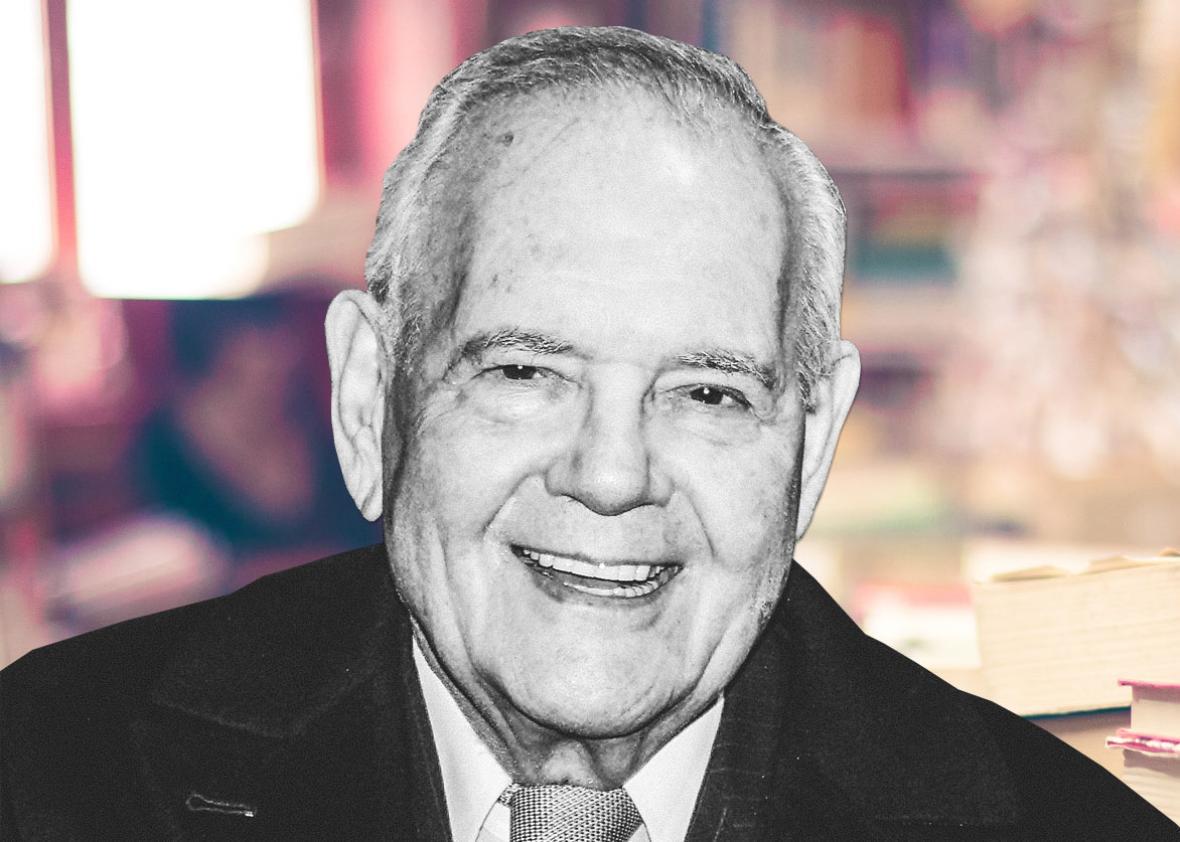Complaining that book reviewing—as practice and profession—has gone downhill is a time-honored custom in literary circles, but never has that chronic griping led to a more glorious response than the New York Review of Books. Founded during a newspaper strike in 1963, the Review was intended not just to fill a gap in publicity opportunities: It was directly inspired by a 1959 essay, “The Decline of Book Reviewing,” by the formidable critic Elizabeth Hardwick. Hardwick wrote that essay, which decried the current state of popular literary criticism as limp and brainless, for Robert B. Silvers, who was then an editor at Harpers. It was Silvers, along with his longtime co-editor Barbara Epstein and with assistance from Hardwick, who made good on his writer’s call to arms by founding the Review. He went on to edit it for five decades, right up until his death on Monday, at the age of 87.
Silvers was the last of the founding generation of Review editors. (Epstein died in 2006.) Like many great editors, he was largely invisible to the readers who loved the work he helped to bring into the world. It was Silvers, for example, who sent Mary McCarthy to report on the Vietnam War and persuaded Joan Didion to write about America’s political conventions; without him, Didion’s celebrated 1988 essay “Insider Baseball,” would never have been written. “I needed him so much,” Didion explained in The 50-Year Argument, Martin Scorsese’s 2013 documentary about the Review, “not so much to walk me through it as to give me the confidence I could walk myself through it. … Bob involved me in writing about stuff I had no interest in.” The film is a rare tribute to the behind-the-scenes nudging and cajoling (and sometimes berating) by which talented editors cause great writing to happen.
The Review, published as an oversized broadsheet, has never been exclusively about books. It has also served as a political sounding board for American (and international) liberal intellectuals, opposing wars from Vietnam to Iraq. In recent years, the publication came under attack for its predominantly male bylines, and Silvers’ response—that in its history the Review had published many women writers who Silvers then proceeded to list, failed to appease most of its critics. Yet it continued, well into its fifth decade, to publish stories literary people couldn’t help talking about, such as Zadie Smith’s 2010 essay on the impact of social media and Marilynne Robinson’s long interview with President Barack Obama in 2015.
Over the years, Silvers published Susan Sontag (who called him the best editor she’d ever worked with), Norman Mailer, Gore Vidal, W.H. Auden, Cynthia Ozick, Oliver Sacks, Michael Chabon, Lorrie Moore, Derek Walcott, Darryl Pinckney, and many, many more titans than it’s possible to list. His ability to talk even the busiest, most deadline-averse writer into “having a look at” a title that had just crossed his desk was legendary. If you spent any time with someone who contributed regularly to the Review, you learned to expect faxes and phone calls late at night and on weekends, requesting the change of a word, or a semicolon; Silvers never seemed to sleep or take vacations. Well into his 80s he could be counted on to turn up for and stay late at book parties, an avuncular and splendidly dapper eminence who made New York’s storied literary past seem less far away.
Whether the Review can continue without Silvers to guide it has long been a subject of speculation among its admirers and its critics. He had designated no successor. Silvers maintained that apart from securing a second round of financing in the early 1960s, the publication has always operated in the black, but its aging subscriber base may not be around much longer to pony up over $100 per year for old David Levine caricatures and 5,000-word essays on Renaissance painters. Still, who can imagine the literary world without it, or, for that matter, him? “I believe in the writer—the writer, above all,” Silvers told Review contributor Mark Danner in an interview published in New York magazine to coincide with the publication’s 50th anniversary. He proved that every day.
